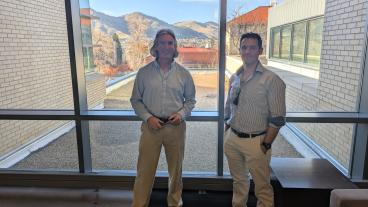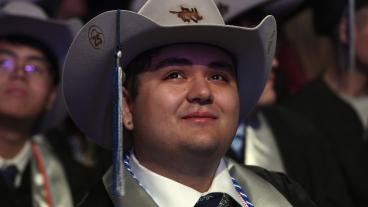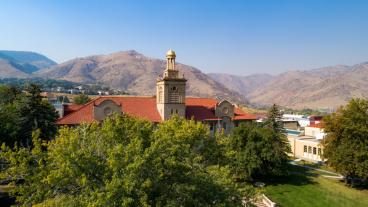With start of the 2017-18 academic year, Colorado School of Mines proudly welcomes its newest faculty members, dedicated to advancing the science and technology of their respective fields and educating the next generation of engineers and scientists.
 Jeffrey Ackerman
Jeffrey Ackerman
Teaching Assistant Professor, Mechanical Engineering
PhD, Purdue University
Jeffrey Ackerman received a PhD in mechanical engineering from Purdue University, studying the dynamics of legged locomotion while carrying heavy loads with highly-compliant suspension systems. His work with Dr. Justin Seipel was funded by an NSF grant and the National Defense Science and Engineering Graduate Fellowship. Ackerman was a visiting assistant professor in mechanical engineering at Purdue and worked as a design engineer at BraunAbility, the leading vehicle wheelchair lift and ramp manufacturer. Prior to joining Mines, he became president of startup company Prehensile Technologies, which is developing robotic assistive technology for people with disabilities. Ackerman is passionate about design, robotics, biomechanics, 3-D printing, prototyping and entrepreneurship. He is the adviser for the Mines Maker Society.
 Mark L. Baldwin
Mark L. Baldwin
Professor of Practice, Computer Science
MS, Purdue University
Mark Baldwin earned a bachelor's and master's degree in engineering sciences from Purdue University. Before entering academia, he served in the United States Air Force as a missileman and worked at NASA in charge of ascent flight design for the Space Shuttle. Baldwin is also one of the founders of the computer game industry, having written, programmed, designed, directed and/or produced over 30 commercial award-winning computer games. Baldwin has taught in academia since 2004. His expertise is in the field of simulations and modeling, and the computer entertainment industry.
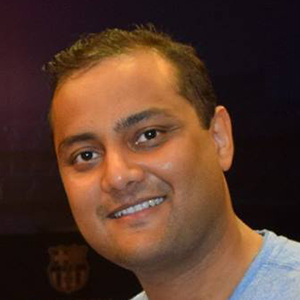 Soutir Bandyopadhyay
Soutir Bandyopadhyay
Associate Professor, Applied Math and Statistics
PhD, Texas A&M University
Soutir Bandyopadhyay earned a doctorate in statistics at Texas A&M University, a master’s degree in statistics at the Indian Statistical Institute in New Delhi and a bachelor’s degree in statistics at St. Xavier’s College in Calcutta. He has also been a visiting scientist at the Computational and Information Systems Laboratory at the National Center for Atmospheric Research studying climate models. Bandyopadhyay’s area of expertise is spatial statistics and bioinformatics. He has published his work in the Journal of Time Series Analysis, the Journal of the Royal Statistical Society, Series B and the Annals of Statistics.
 Ebru Bozdag
Ebru Bozdag
Assistant Professor, Geophysics
PhD, Utrecht University
Ebru Bozdag has been an assistant professor at Colorado School of Mines since April 2017. Previously, she was an assistant professor and held a chaire d’excellence position at University of Nice Sophia Antipolis in France. Prior to joining Nice as a faculty member, she was a postdoctoral research associate, then an associate research scholar, at Princeton University. She received her PhD in seismology from Utrecht University in the Netherlands, and MSc and BSc degrees in geophysics from Istanbul Technical University in Turkey. Her research interests are centered around computational and global seismology. Specifically, she uses 3-D wave simulations to improve our understanding of Earth’s interior by linking observed data to advances in theory and numerical methods in wave propagation and optimization techniques. Her main research has been dedicated to performing global-scale full-waveform inversion based on 3-D wave simulations and adjoint methods.
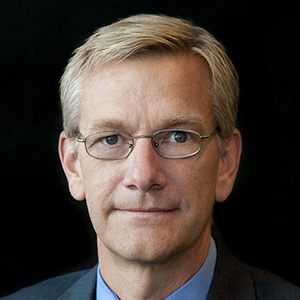 John Bradford
John Bradford
Professor and Department Head, Geophysics
PhD, Rice University
John Bradford received bachelor's degrees in both physics and engineering physics from the University of Kansas in 1994 and a PhD in geophysics from Rice University in 1999. From 1995 to 1999 he was a research scientist at the Houston Advanced Research Center and worked on topics ranging from spectral decomposition for seismic exploration to utility detection with GPR. From 1999 to 2001, Bradford was an academic professional research scientist at the University of Wyoming. In 2001, he joined the Center for Geophysical Investigation of the Shallow Subsurface at Boise State University, where he served as director from 2006 to 2009. He has worked extensively on methodology development for near-surface seismic and GPR applications with emphasis on imaging, attenuation and offset dependent reflectivity. He has published on a diverse array of topics that include hydrocarbon detection, hydrogeophysics, glaciology and polar ecology. He served as associate editor for Geophysics from 2005 to 2008 and associate editor for Near Surface Geophysics from 2009 to 2012 and coedited the Society of Exploration Geophysics book "Advances in Near-Surface Seismology and Ground-Penetrating Radar." Bradford served as SEG second vice president on the 2009-2010 SEG Executive Committee and president of the SEG Near Surface Section from 2012 to 2013. From 2014 to 2017, he served as president-elect, president and past president of the SEG. He was recognized as one of Houston’s Best and Brightest in 1999, received the Harold Mooney Award from the SEG Near Surface Section in 2010 and was awarded SEG life membership in 2012.
 Neil T. Dantam
Neil T. Dantam
Assistant Professor, Computer Science
PhD, Georgia Tech
Neil Dantam’s research focuses on robot planning and control. He has developed methods to combine discrete and geometric planning, improve Cartesian control and analyze discrete robot policies. In addition, he has worked on practical aspects of robot manipulation and software design to ensure that new theoretical techniques can be validated in the physical world. Previously, Dantam was a postdoctoral research associate in computer science at Rice University working with Lydia Kavraki and Swarat Chaudhuri. Dantam received a PhD in robotics from Georgia Tech, advised by Mike Stilman, and bachelor's degrees in computer science and mechanical engineering from Purdue University. He has worked at iRobot Research, MIT Lincoln Laboratory and Raytheon. Dantam received the Georgia Tech President's Fellowship, the Georgia Tech/SAIC paper award and an American Control Conference 2012 presentation award and was a Best Paper and Mike Stilman Award finalist at HUMANOIDS 2014.
 Dylan Domaille
Dylan Domaille
Assistant Professor, Chemistry
PhD, University of California, Berkeley
Dylan Domaille earned his PhD in chemistry at the University of California, Berkeley. Working with Chris Chang, he developed sensitive and selective fluorescent probes for imaging copper in live cells, as well as the first example of a ratiometric probe for monitoring cellular copper pools. He went on to work with Jennifer Cha at University of Colorado Boulder, where he expanded his research to include phage-based biosensors, DNA-templated organocatalyzed systems, dynamic covalently cross-linked hydrogels and biocompatible chemical catalysis. As an assistant research professor at CU-Boulder, he collaborated with research groups in fields from electrical engineering to chemistry, developing polymers that combine the ease and scalability of synthetic polymer chemistry with the base pair recognition properties of DNA. He is an author on 28 publications on subjects ranging from synthetic chemistry to bioinorganic chemistry to biomaterials. His current research focuses on developing biomaterials with predictable and programmable behavior, designing and synthesizing small molecule fluorescent sensors for studying cellular events and merging engineered organisms with biocompatible chemistry to improve the efficiency of biomass conversion technologies.
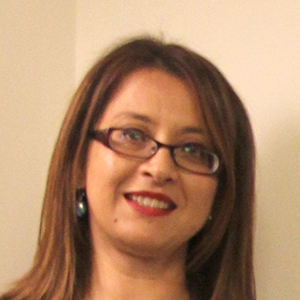
Professor and Banfield Chair, Mining Engineering
PhD, Middle East Technical University
H. Sebnem Düzgün received her PhD from the Department of Mining Engineering at Middle East Technical University (METU) in 2000 and had been a full professor in the same department since 2010. She was a visiting scholar in the Department of Civil and Environmental Engineering at MIT from 1998 to 1999 with an award given by the Turkish Scientific and Technical Council (TUBITAK). She performed research as a postdoctoral fellow from 2004 to 2005 at Norwegian Geotechnical Institute and International Center for Geohazards with a grant from the Norwegian Research Council. Düzgün was awarded the Alexander von Humboldt Foundation’s experienced researcher fellowship in 2014 and used it to conduct research at the Geophysical Institute at Karlsruhe Institute of Technology in Germany from 2015 to 2016. She has been named to the Fred Banfield Distinguished Endowed Chair in Mining Engineering at Mines. Düzgün’s main research areas involve quantitative risk and resilience assessment in geohazards, structural reliability in rock engineering, spatial and spatio temporal data analysis and mining, Earth observation in geosciences, simulation and serious gaming for technical training. Düzgün is the author of four books, 10 book chapters and more than 200 papers.
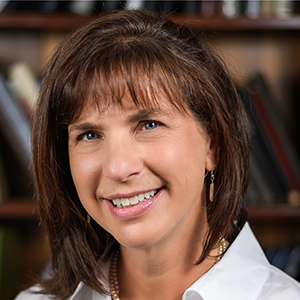 Wendy Fisher
Wendy Fisher
Teaching Associate Professor, Computer Science
PhD, Colorado School of Mines
Wendy Fisher received her bachelor's degree in computer science from Wright State University, Ohio, in 1996 and spent several years working in industry as a computer scientist, software engineer and business owner. She received her master's degree in computer science from Colorado School of Mines in 2014 and stayed to complete her PhD in computer science in 2017. Fisher’s research involves the use of machine learning for the automatic detection of anomalous events. Her research interests also include artificial intelligence, pattern recognition, signal processing, computer science education and real-world computing applications. She has won awards for her presentations and research, such as the Colorado School of Mines 2016 Graduate Student Award for outstanding research-related contributions in computer science and top poster and presentation awards two years in a row from the Conference on Earth & Energy Research and Computing-Mines Affiliates Partnership Program (C-MAPP). In her free time, she enjoys hiking, skiing and spending the days with her two amazing teenagers.
 Thomas Gennett
Thomas Gennett
Professor and Department Head, Chemistry
PhD, University of Vermont
Thomas Gennett’s applied/basic research program is energy system-centric with a strong materials and engineering emphasis. His work is focused on developing and understanding materials for hydrogen and energy storage with specific applications for transportation and grid storage. He has several ongoing projects: investigation into the mechanism of room temperature hydrogen sorption for carbon and framework sorbents, while in parallel his team develops next-generation characterization methodologies to understand the fundamental nature of gas-solid interactions; investigation of hybrid hard-soft materials matrices for novel nonaqueous flow battery systems; and the development of non-PGM catalysts by physical vapor deposition methodologies.
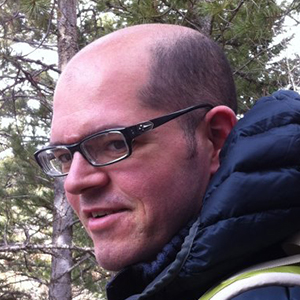 Benjamin Gilbert
Benjamin Gilbert
Assistant Professor, Economics and Business
PhD, University of California, San Diego
Ben Gilbert was most recently an assistant professor of economics at the University of Wyoming. His research interests include topics in environmental and natural resource economics using methods from econometrics, applied microeconomics and behavioral economics. His two most recent research projects investigate the role of drilling activity as a link between the market prices of crude oil and natural gas and the importance of “green” social image in the adoption of residential solar panels. At the University of Wyoming, Gilbert twice received the Tom & Judy Crocker best research paper award from the Department of Economics, in addition to awards for excellence in teaching and service from the College of Business. Before earning his PhD in economics from the University of California, San Diego in 2011, Gilbert was a news reporter covering the market penetration of new energy technologies for an industry magazine. He holds bachelor's degrees in economics and English from Whitman College. In his spare time, Gilbert enjoys trying to convince his wife and two daughters to go camping with him.
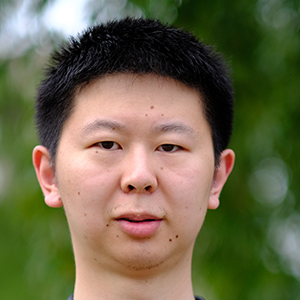 Zhexuan Gong
Zhexuan Gong
Assistant Professor, Physics
PhD, University of Michigan
Zhexuan Gong obtained his bachelor's degrees in both physics and computer science from Huazhong University of Science and Technology in China's Hubei province, where he was born. He then went to University of Michigan, where he obtained his PhD there in 2013. After graduation, he spent three years working as a postdoctoral researcher at the Joint Quantum Institute between the University of Maryland and the National Institute of Standards and Technology before being promoted to a research scientist in 2016. He is an active researcher in the broad field of quantum information and is particularly interested in understanding new quantum materials using concepts and tools from quantum information. In his free time, he enjoys playing piano, listening to classical music, reading novels, swimming and traveling.
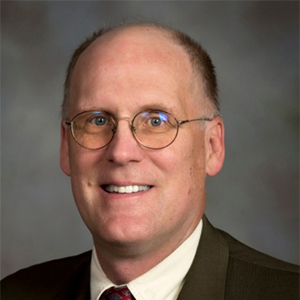 Richard Hunt
Richard Hunt
Assistant Professor, Economics and Business
PhD, University of Colorado Boulder
Richard (“Rick”) A. Hunt previously held an appointment in strategic management and entrepreneurship at Virginia Polytechnic Institute, where he taught undergraduate and graduate courses in strategic management and entrepreneurship. He also served as VT’s faculty research director at the Center for Innovation and Entrepreneurship. Hunt’s research examines the intersection of entrepreneurship, innovation and strategy, including entrepreneurial environments, advantageous knowledge, new sector formation, modes of market entry and early-stage operational behavior. His approach employs transactions as the unit of analysis in order to capture meso-level effects, and he often juxtaposes contemporary data and distant, historical data in order to overcome proximity biases and inject a longitudinal dimension into the inquiry. Hunt has published his research in the Journal of Management Studies, Organizational Science, Strategic Entrepreneurship Journal, the Journal of Small Business Management, European Innovation Journal, Frontiers of Entrepreneurship Research, the Journal of Entrepreneurial Finance and the Academy of Management’s Best Paper Proceedings. His work has received more than a dozen best paper awards, including recognition as the outstanding doctoral dissertation of 2014 by the Academy of Management. Prior to his doctoral studies at CU-Boulder, Hunt worked in Indonesia, Hong Kong and the United States as a finance and planning executive in the pharmaceutical and high-tech sectors. He was also the cofounder and president of a successful startup that provides customized environmental services throughout the Western United States. In addition to his PhD, Rick holds degrees from Rice (BA), Harvard (MA) and Stanford (MBA).
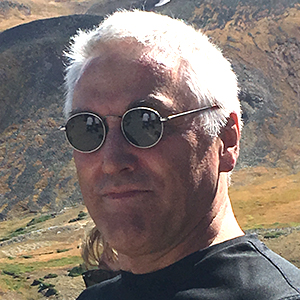 John Jechura
John Jechura
Professor of Practice, Chemical and Biological Engineering
MS, University of Michigan
John Jechura joins Colorado School of Mines this fall after spending 35-plus years in industry and government technology development. Jechura has worked his entire career with a primary focus on fuel production and energy technology. He started his career with Marathon Oil Company, supporting upstream and downstream technologies, then the National Renewable Energy Laboratory supporting biofuels production technologies, and combining both areas to support clients both in areas of traditional petroleum exploitation as well as biofuels production. Even though Jechura is starting a new phase of his career as a full-time teaching faculty member at Mines, he has held an adjunct appointment in the Chemical and Biological Engineering Department since 1999. Jechura’s formal education has been in chemical engineering, with a bachelor's degree from the University of Toledo, a master's from the University of Michigan and non-degreed graduate work at Colorado School of Mines. He will continue to develop and teach process- and industrial-related courses.
 Werner G. Kuhr
Werner G. Kuhr
Director of Entrepreneurship and Innovation, Academic Affairs
PhD, Indiana University
Werner Kuhr’s goal is to enable engineering students to better define the value of their work and, ultimately, use that knowledge to create new ventures. That will be accomplished by exposing them to the processes of entrepreneurial thinking. Previously, Kuhr was director of the Stevens Venture Center at Stevens Institute of Technology, where he was responsible for crafting an entrepreneurial culture on campus to facilitate the creation of new faculty- and student-led startup companies, as well as supervising the technology transfer and licensing of all Stevens’ technologies. Working with the administration and local business leaders, SIT established a new technology business incubator, Stevens Venture Center, whose programs were focused on biomedical engineering, financial technologies and digital education. Kuhr helped design and teach the first freshman-level course in innovation and entrepreneurship for all entering freshman engineering students (required for more than 500 students, with more than 2,000 taught), revamped a senior-level course to provide an entrepreneurial workshop to capstone engineering design projects and established a pre-college summer program in entrepreneurship for high school students. Kuhr earned bachelor's and master's degrees from Stevens and received a PhD in chemistry and neuroscience from Indiana University. After two years of postdoctoral work, Kuhr became a professor of chemistry at the University of California, Riverside. There, he ran a research program that graduated 25 PhD and master's students in fifteen years, published roughly 100 papers (H-index = 53) and received extramural funding in excess of $8 million. Since that time, Kuhr has had more than ten years of experience in the private sector leading multimillion-dollar research enterprises. He participated in the formation of five startup technology companies: Seurat Analytical, protein microarray detection systems; Clinical MicroSensors, DNA detection and medical devices; ZettaCore Inc., molecular electronic structures; eSionic Corp., electrolytes for charge storage devices; and ChemiSensor LLP, chemical sampling and sensor systems, which he still owns.
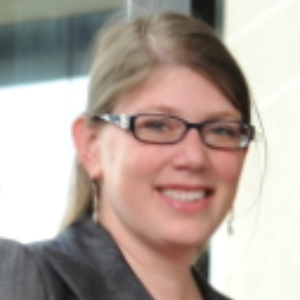 Amy Landis
Amy Landis
Professor, Civil and Environmental Engineering
PhD, University of Illinois at Chicago
Amy Landis joins Mines as the first Presidential Faculty Fellow for Access, Attainment and Diversity. Previously, she was a full professor at Clemson University from 2015 to 2017 as the Thomas F. Hash ’69 Endowed Chair in Sustainable Development. She served as director of Clemson’s Institute for Sustainability, which brings together interdisciplinary research, education and business. Landis was an associate professor at Arizona State University’s School of Sustainable Engineering in the Built Environment from 2012 to 2015. During her tenure at ASU she served as director of research for the Center for Earth Systems Engineering and Management, senior sustainability scientist for the Global Institute of Sustainability, Lincoln Fellow of Sustainable Development and Ethics for the Lincoln Center for Applied Ethics and Tooker Professor of STEM Education for the Ira A. Fulton Schools of Engineering. Landis began her career as an assistant professor at the University of Pittsburgh after earning her PhD in 2007 from the University of Illinois at Chicago under the supervision of Thomas L. Theis. Landis has developed a research program in sustainable engineering of bioproducts. Her research ranges from design of systems based on industrial ecology and byproduct synergies, life cycle and sustainability assessments of biopolymers and biofuels and design and analysis of sustainable solutions for health care. Since 2007, she has led nine federal research projects and collaborated on many more, totaling more than $30 million in collaborative research. Landis continues to grow her research activities and collaborations to include multidisciplinary approaches to sustainable systems. She is dedicated to sustainability engineering education, outreach and diversity in STEM. She has established networking and mentorship programs at three different universities to advance diversity and STEM. She also works with local high schools, after-school programs, local nonprofit organizations, extensions and museums to integrate sustainability and engineering into K-12 and undergraduate curricula.
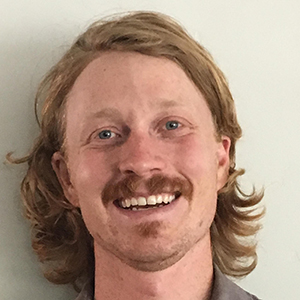 Forest Mannan
Forest Mannan
Visiting Assistant Professor, Applied Math and Statistics
PhD, Tulane University
Forest Mannan grew up in Carbondale, Colorado, and obtained his PhD from Tulane University in April 2017. Mannan conducts research in computational fluid dynamics, especially flows in the Stokes regime relevant to biology.
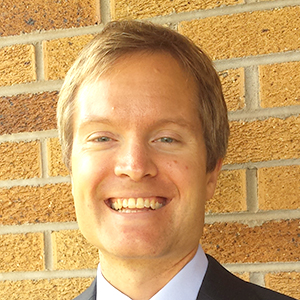 Bradley Martin
Bradley Martin
Visiting Assistant Professor, Applied Math and Statistics
PhD, University of Colorado Boulder
Bradley Martin recently completed his PhD in applied mathematics with Bengt Fornberg and the RBF research group at CU-Boulder while investigating new, radial basis function-based methods for numerically solving partial differential equations. His work on heat and wave interface and transport problems has been published in Geophysics, the Journal of Computational Physics and Engineering Analysis with Boundary Elements.
 Richard Palin
Richard Palin
Assistant Professor, Geology and Geological Engineering
PhD, University of Oxford
Richard Palin completed his undergraduate MESci in the Department of Earth Sciences at the University of Oxford in 2008, and subsequently began a position as an exploration field geologist working in Central Queensland, Australia, with Anglo Coal. Despite enjoying his time in industry, he returned to academia to complete his PhD at the University of Oxford, which he was awarded in late 2013. For his thesis, Palin performed fieldwork in the Himalayan Range and Tibetan Plateau and characterized the temporal, thermal and structural evolution of various key regions. After completing his PhD, Palin moved to Germany to work as a lecturer and postdoctoral research fellow at the Institute of Geosciences, JGU Mainz. He published a number of significant papers and achieved widespread recognition for his work by members of the geological community worldwide. In March 2017, Palin moved to Colorado to begin his position as assistant professor of metamorphic geology at Mines. Palin has ongoing collaborations with many researchers worldwide, including those at the University of Oxford; the University of Cambridge; Geological Survey of Canada; Johannes-Gutenberg University of Mainz, Germany; University of Cape Town, South Africa; ETHZ, Switzerland; and University of Melbourne, Australia, among others. Palin also serves the community by regularly performing reviews of papers for scientific journals and of grant proposals for funding agencies.
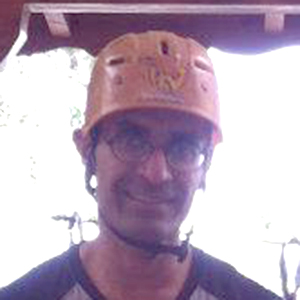 Sridhar Seetharaman
Sridhar Seetharaman
Professor, Metallurgical and Materials Engineering
PhD, Massachusetts Institute of Technology
Sridhar Seetharaman joins Mines from the U.S. Department of Energy, where he served as a senior technical advisor, and was until recently the RAEng/Tata Steel Joint Chair for Research into Low Carbon Materials Technology at the University of Warwick. He was, until 2013, the POSCO Professor at Carnegie Mellon University, co-director of the Industry-University Consortium, Center for Iron and Steelmaking Research and a faculty fellow at the National Energy Technology Laboratory of the Department of Energy. He is an associate editor of Met. and Mat. Trans A, B and E and serves on the advisory board of Steel Research International and ISIJ International.
 Jeffrey Shragge
Jeffrey Shragge
Associate Professor, Geophysics
PhD, Stanford University
Jeffrey Shragge is a co-leader of the Center for Wave Phenomena research consortium at Mines. He was formerly the Woodside Professor in Computational Geoscience and an associate professor jointly appointed in the School of Earth and Environment and School of Physics at the University of Western Australia. Shragge received a BScH in physics from Queen’s University, an MSc in geophysics focusing in earthquake seismology from the University of British Columbia, and a PhD in geophysics focusing in 3D seismic imaging from the Stanford Exploration Project at Stanford University. He currently serves as an assistant editor of the journal Geophysics, and is the chair of both the Committee of University and Student Programs and the Field Camps Committee for the Society of Exploration Geophysicists. In 2010, he was awarded the J. Clarence Karcher Award by the SEG, and was recognized with a Best Paper Award at the 2012 ASEG Annual General Meeting. Shragge’s research interests include 3-D/4-D seismic imaging and velocity inversion, wave propagation, near-surface geophysics, scientific high-performance computing and humanitarian geophysics.
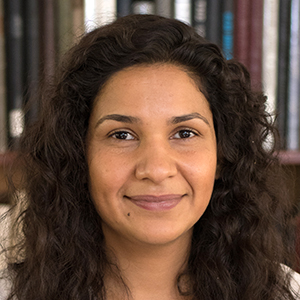 Meenakshi Singh
Meenakshi Singh
Assistant Professor, Physics
PhD, Pennsylvania State University
Meenakshi Singh’s research targets the development of semiconducting quantum computers with a focus on donor-based spin qubits. She graduated with a PhD in physics from Pennsylvania State University in 2012. Her PhD thesis was focused on quantum transport in nanowires. Singh has coauthored more than a dozen publications, including an invited chapter to the book “Superconductors – Properties, Technology and Applications,” and has received several awards for excellence in coursework and research. In addition to research, Singh is interested in science education and outreach. She has mentored five undergraduate students participating in NSF’s Research Experiences for Undergraduates program. Her service record includes serving as treasurer for the Physics and Astronomy for Women Society at Penn State, which provides a forum to discuss issues facing women seeking scientific degrees and careers. She has continuing research interest in superconductivity and macroscopic quantum phenomena, with a view toward hybridizing superconductors with other systems to access novel phenomena and applications.
 Nicole M. Smith
Nicole M. Smith
Assistant Professor, Mining Engineering
PhD, University of Colorado Boulder
Nicole M. Smith joined the Mining Engineering Department at Colorado School of Mines as an assistant professor in January 2017. She is a cultural anthropologist with the following research interests: artisanal and small-scale mining; mining, sustainability and social responsibility; rural livelihoods and mining developments; indigenous peoples; community development; and engineering education. Prior to her position in the Mining Engineering Department, she was a postdoctoral scholar in the Humanitarian Engineering Program at Mines. She was also a research fellow at the Centre for Social Responsibility in Mining at the Sustainable Minerals Institute at the University of Queensland. Her work there focused on health and safety in artisanal and small-scale mining. Smith holds a PhD in anthropology and a certificate in development studies from the University of Colorado Boulder, where her research focused on Maasai gemstone traders in northern Tanzania. She holds a master’s degree in anthropology from Colorado State University and a bachelor’s degree in anthropology with a biology minor from the University of Minnesota.
 Steven Smith
Steven Smith
Assistant Professor, Economics and Business
PhD, University of Colorado Boulder
Steven Smith obtained a bachelor’s degree in mathematics from DePauw University before earning his PhD in economics from the University of Colorado Boulder in 2014. His research focuses on how policies, laws and organizations impact our use of natural resources. Most often dealing with water, he has studied various settings, from groundwater to surface water and contemporary Peru to the historic U.S. He has also written on the challenges of introducing economic incentives to provide environmental services such as carbon sequestration. Most recently, as a postdoctoral fellow at Haverford College, he helped to establish a new Environmental Studies Program, teaching numerous natural resource economic courses as well as coteaching the Environmental Studies Introduction course.
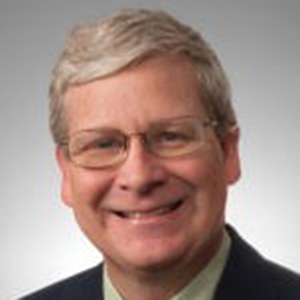 George Sowers
George Sowers
Professor of Practice, Mechanical Engineering
PhD, University of Colorado Boulder
George Sowers has 30 years of experience in the space transportation field. During a continuous span working for Martin Marietta, Lockheed Martin and the United Launch Alliance, including a stint as the chief systems engineer for Atlas V development, Sowers helped develop more than a dozen launch systems. He recently retired from his position as vice president and chief scientist of ULA, where his team developed an architecture for fully reusable in-space stages fueled by propellant mined, refined and distributed in space. He holds a bachelor's degree in physics from Georgia Tech and a PhD in physics from the University of Colorado. Sowers is a fellow of the American Institute of Aeronautics and Astronautics.
 Garritt J. Tucker
Garritt J. Tucker
Assistant Professor, Mechanical Engineering
PhD, Georgia Institute of Technology
Garritt Tucker spent the previous four years as an assistant professor in the Department of Materials Science and Engineering at Drexel University in Philadelphia. He founded and directed the Computational Materials Science and Design Group at Drexel, where he employed computing/numerical/theoretical techniques to research both the fundamental physics and mechanics of emerging materials and new avenues for tailoring advantageous functional properties in hierarchical engineered microstructures. Furthermore, he assisted in the development of the University Research Computing Facility at Drexel, where high-performance computing integrates with engineering and scientific endeavors. He earned his PhD in 2011 from the School of Materials Science and Engineering at the Georgia Institute of Technology in the Mechanics of Materials group with David L. McDowell and was a Sigma Xi award nominee. Prior to starting at Drexel in 2013, he spent two years as a postdoctoral research appointee at Sandia National Laboratories in Albuquerque in the Computational Materials and Data Science group with Stephen Foiles, and as an EPSRI intern at Sandia National Laboratories in Livermore, California. During the summer of 2015, Tucker was an honorary invitee for the Institute of Materials Science at Los Alamos National Laboratories. While at Drexel, his work was continuously featured at both domestic and international conferences and in materials modeling workshops/lectures, and he was awarded the Most Outstanding Teacher Award in 2015 and the TMS Young Leader Award in 2016.

Professor, Geophysics
PhD, University of California, Berkeley
Ali Tura is professor of geophysics and director of the Reservoir Characterization Project at Colorado School of Mines. His expertise is in the areas of seismic data processing, seismic analysis, time-lapse seismic, rock physics, fiber optic technology and data analytics. He is also chief scientist at Tulip Geosciences, a consulting and training company. Prior to this he was geophysical senior fellow at ConocoPhillips. Tura was a founding member and COO of 4th Wave Imaging, a seismic R&D company. His other responsibilities have included leading time-lapse seismic reservoir monitoring at Chevron and Shell and amplitude-preserving migration-based AVO analysis at Elf (now Total). Tura received a B.Sc. degree from Istanbul University and master's and PhD degrees from the University of California, Berkeley, all in engineering geosciences. His work during this period ranged from deconvolution of seismic data to full-waveform seismic modeling of vertical seismic profiling data to fracture detection from cross-well reflection/diffraction tomography in anisotropic media at Lawrence Berkeley National Laboratory. He has taught graduate-level courses in the Mathematical Sciences Department at the University of Texas, Dallas, and the Istanbul Technical University Geophysics Department. He was a visiting scientist at Karlsruhe University, Germany, where he worked on comparing theoretical aspects of Kirchhoff versus Born modeling and migration. Tura has mentored many PhD interns at ConocoPhillips and Chevron and led an industrial consortium on time-lapse seismic while at 4th Wave Imaging.
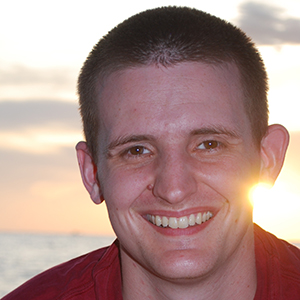
Teaching Assistant Professor, Mechanical Engineering
PhD Colorado School of Mines
Jeffrey Wheeler received his master’s degree and PhD in engineering systems from Colorado School of Mines. Before coming to Mines, Wheeler earned a bachlor of science degree in engineering physics and a bachelor of arts degree in mathematics from Whitworth University in Spokane, Washington. Before joining the Mechanical Engineering faculty, Wheeler worked with Vartega, a startup focused on recycling carbon fiber manufacturing scrap. He also taught as an adjunct professor in the Department of Mechanical Engineering. Wheeler is passionate about developing instrumentation systems and working with the local startup community. He uses his experience to bring hands-on learning into the classroom. Wheeler lives in Denver with his wife, Katie, and enjoys cooking, backpacking and traveling.
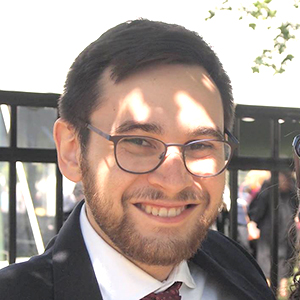 Tom Williams
Tom Williams
Assistant Professor, Computer Science
PhD Tufts University
Tom Williams’ research focuses on enabling and understanding natural language-based human-robot interaction, especially as applied to assistive and search-and-rescue robotics. He previously served as a visiting researcher at the Institute for Artificial Intelligence in Bremen, Germany, and has co-organized several international workshops on human-robot interaction. Williams earned a joint PhD in computer science and cognitive science from Tufts University in 2017.
CONTACT
Mark Ramirez, Managing Editor, Communications and Marketing | 303-273-3088 | ramirez@mines.edu
Emilie Rusch, Public Information Specialist, Communications and Marketing | 303-273-3361 | erusch@mines.edu

